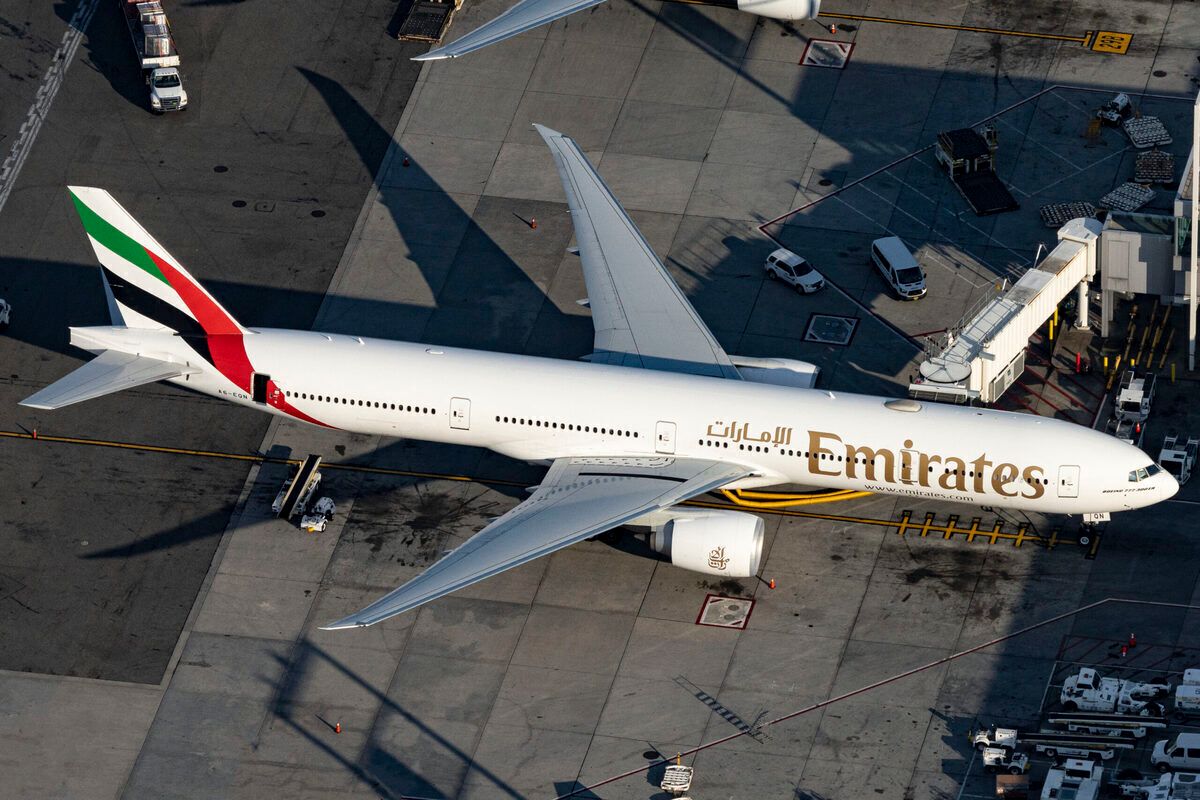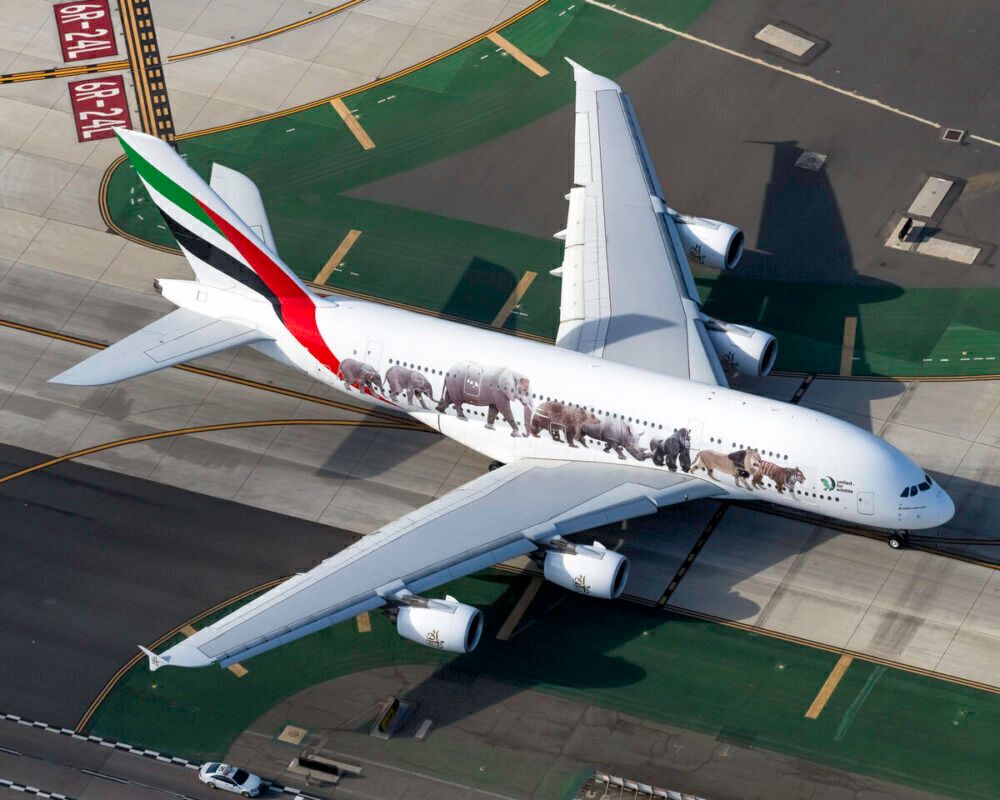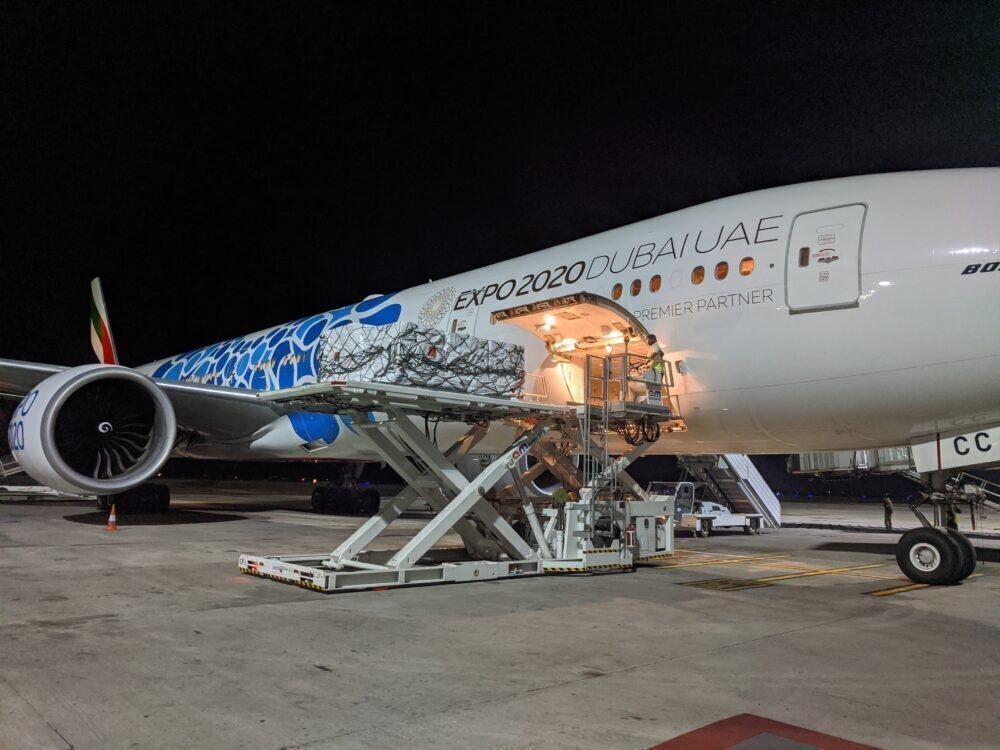UAE flag carrier and A380 operator extraordinaire Emirates released its annual financial results on Tuesday morning. As expected during COVID, and in particular for an airline so heavily dependent on long-haul and transfer traffic, it makes for grim reading. For its first non-profitable year in over three decades, Emirates reported a loss of AED 20.3 billion (US$ 5.5 billion).
Began with zero scheduled passenger flights
In comparison, for the previous year, which ended just on the cusp of world aviation shutting down fleet by fleet, the airline reported a profit of AED 1.1 billion (US$288 million). The end of 2018-19, on the other hand, closed with a profit of AED 2.3 billion (U$626 million).
Revenue over the twelve months ending on March 31st declined by 66% to AED 30.9 billion (US$8.4 billion), partly attributed to the eight-week total passenger flight suspension in and out of Dubai in late March 2020, which meant zero scheduled flights for the airline.
Emirates' total passenger and cargo capacity was down 58% to 24.8 billion available tonne kilometers (ATKM). In total, it carried 6.6 million passengers, down by 88% from the year before, and seat capacity was down by 83%.
The airline also reduced its overall fleet by 11 aircraft, as it phased out 14 older planes and took delivery of three new Airbus A380 superjumbos. Emirates let go of nine Boeing 777-300ERs and five A380s, which left its total fleet at 259 at the end of March.
Meanwhile, the carrier asserts that its orders for 200 aircraft remain unchanged for now. Emirates also stated that it invested AED 4.7 billion (US$ 1.3 billion) in new aircraft, facilities, and technologies throughout the year.
Meanwhile, the total loss for Emirates Groups as a whole was AED 22.1 billion (US$ 6.0 billion). The state-owned Group, which includes Emirates with Emirates SkyCargo, and Emirates Flight Catering, as well as aviation service provider dnata, saw a total decline of revenue of 66% compared to last year's results, ending at AED 35.6 billion (US$ 9.7 billion). The Group's cash balance was AED 19.8 billion (US$ 5.4 billion), down by 23%.
Stay informed: Sign up for our daily and weekly aviation news digests.
Cargo largest revenue contributor
Emirates SkyCargo made the most of the chaotic year and contributed 60% of the airline's total transport revenue. It took over no less than 19 passenger Boeing 777-300ERs which it modified into what the carrier called 'mini-freighters' to meet the rapidly growing demand.
In October, the airline's cargo division set up a COVID-19 vaccine-dedicated airside hub in Dubai. It also partnered with UNICEF to transport vaccines to developing nations. In total, Emirates SkyCargo ended the year with AED 17.1 billion (US$ 4.7 billion) in revenue - an increase of 53% from the previous twelve months. Freight yield per Freight Tonne Kilometer (FTK) increased by 88%.
Workforce shrunk by 31%
Despite leveraging a capital injection of AED 11.3 billion (US$ 3.1 billion) from the Government of Dubai, and an additional AED 800 million (US$ 218 million) for dnata from industry support programs, redundancies were a fact across all parts of the business. Emirates Group had to let go of 31% of its workforce, ending the year with 75,145 employees.
Meanwhile, His Highness Sheikh Ahmed bin Saeed Al Maktoum, Chairman and Chief Executive of Emirates, is confident in his airline's recovery and future growth.
"Until 2020-21, Emirates and dnata have had a track record of growth and profitability, based on solid business models, steady investments in capability and infrastructure, a strong drive for innovation, and a deep talent pool led by a stable leadership team. These fundamental ingredients of our success remain unchanged. (...) I am confident that Emirates and dnata will recover and be stronger than before."
How long do you think it will be until Emirates is profitable again? Leave a comment below and let us know.



